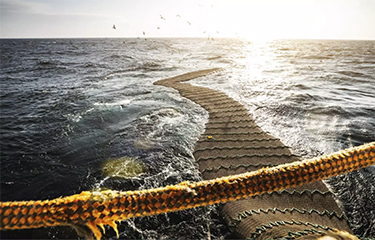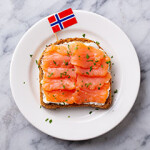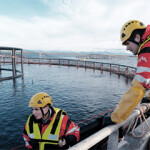Northeast Atlantic mackerel fishery downgraded after another failed quota negotiation

The Marine Conservation Society (MCS), a U.K.-based non-governmental organization, has become the latest organization to designate Northeast Atlantic mackerel an unsustainable choice after coastal states failed to meet a deadline on shares of the species.
Multiple organizations have called on coastal states harvesting Northeast Atlantic mackerel – which is fished by the E.U., U.K., Iceland, and Norway – to reach an agreement on the species aligning with scientific advice from the International Council for the Exploration of the Seas (ICES). The fishery was one of multiple pelagic species that lost Marine Stewardship Council certification after coastal states failed to reach an agreement that kept total allowable catches in line with scientific advice.
The coastal states set a deadline of 31 March, 2023, for some form of agreement on sharing the Northeast Atlantic mackerel stock, but that date passed with no agreement.
The North Atlantic Pelagic Advisory Group (NAPA), a group of retailers established to push for improved regional fisheries management, said the countries involved in the fishery had “blown it.”
“We had thought that [the problem with] Northeast Atlantic mackerel was being taken seriously by the coastal states, and their self-imposed ‘hard deadline’ would stimulate agreement on catch shares,” NAPA Project Lead Tom Pickerell said. “But once again the market, and the consumers they serve, are left frustrated and disappointed. The obstacles are wholly political. The solution lies entirely with the coastal states and their willingness to reach agreement. Their own lofty commitments to sustainable fishing are worthless in the face of this outcome.”
As a result of the failure, the NAPA fishery improvement project for the species was downgraded to a “D” rating – which the group said may have “serious implications” for member companies that have committed to only purchasing species from fishery improvement projects rated "C" or better.
Another consequence was the downgrade of the species by the MCS on its Good Fish Guide, removing it from its “Best Choice” list and rating it as “amber,” or a species to avoid.
“International cooperation is the only way to fix this problem, and U.K. governments must lead by example,” Good Fish Guide Manager Charlotte Coombes said. “We need to see countries agree on quotas, and extra management measures being put in place to protect stocks.”
The rating update directly referenced the coastal states' inability to reach a firm commitment on reducing fishing effort.
A fishing group in Scotland objected to the downgrade, claiming it is an overly harsh assessment in light of long-term data. Scottish Pelagic Sustainability Group Chair Ian Gatt said the stock is actually at historic highs and is only down compared to its 2015 biomass, which was the highest in 40 years.
“It’s clear that the ecosystem cannot carry that biomass of mackerel, therefore, the stock is back to above-average levels,” Gatt said. “It is not true to say the stock continues to decline as it has been stable over the last couple of years. What’s also clear from the advice is there is a large influx of juvenile fish (recruitment) coming into the stock. This has been witnessed by our fishermen on the grounds.”
Gatt said his group has asked to meet with the MCS to learn more about its methodology, but so far the MCS has “refused to engage.”
“Whilst we recognize that fishing pressure for Northeast Atlantic mackerel is higher than desired due to the failure of coastal states to agree catch shares, it is simply untrue to say that the stock is in bad shape,” Gatt said.
ICES advice, meanwhile, indicates that the current fishing pressure on Northeast Atlantic mackerel is at an unsustainable level, regardless of the status of the stock.
“There are serious problems in the Northeast Atlantic mackerel fishery – overfishing has been happening since 2009,” NAPA said. “No concrete steps were taken to rectify the fundamental management flaws that are fueling this overfishing.”
Photo courtesy of the North Atlantic Pelagic Advisory Group






Share